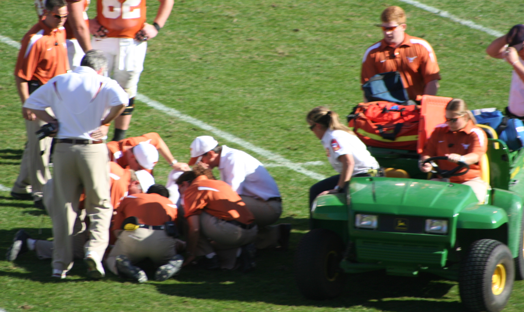Sitting Out The Preseason Doesn’t Protect Players … It Hurts Them

It’s the start of another NFL season, and along with it comes complaints about the preseason.
This year, just like every year in the past, the debate over the length and necessity of the NFL’s exhibition season rages on. Too many games. Too few stars. Too many injuries. Why do we need it?
The preseason, much like training camp, mini camps and general practices, is actually highly important. Sure, maybe it’s a little long — particularly when you take the quantity and severity of the injuries into account — but getting rid of it entirely would be detrimental.
Let’s look at three reasons why preseason is important for all sports, and whether players should sit out exhibition games or play:
1. Practice makes perfect
Athletes of all sports, at all levels, need to practice. They need instruction and coaching to correct mistakes and improve execution. They need live game reps to experience the speed of actual games and develop muscle memory.
While league stars may not need to establish themselves for roster spots, they still need to be fresh and prepared for the season at hand. When week one comes, they better be game ready and in game shape. That may be hard when some players only play one half of one preseason game.
For the back end of NFL rosters that are constantly churning, players need every opportunity possible to develop those in-game instincts, as well as put their game on tape for coaches and scouts.
Whether the player is a franchise superstar or on the roster bubble, consistent practice and playing is the only way to improve at any level.
2. Going from 0 to 100 is risky
When athletes sit out, it’s not just their development that’s getting hurt. They do. Literally.
Just look at any NFL player who has held out of training camp and/or the entire preseason. Nearly every single one has gotten injured within the first two weeks of returning to action. That’s because they all put themselves at unnecessary risk.
Athletes should never go from zero practice or light practice immediately to game speed without ramping up over time. It’s too risky, particularly in a sport like football where proper execution is the difference between a clean hit and an injury.
The body needs to be properly prepared. There is always risk of injury, and while some players choose to avoid it in practice or meaningless games, the idea of trying to limit injuries by taking away valuable practice time is counterintuitive. You wouldn’t decide to run a marathon tomorrow without training before hand would you?
3. Achieve — and maintain — peak performance
It’s common for coaches and athletes to want to watch the wear and tear on their bodies, especially as the season wears on. Even the seasons in youth sports are long and take a toll on the players.
So why waste it in the preseason, when the ultimate goal is to be at peak performance levels for the games that matter?
Well, there’s a difference between getting to peak and staying at peak. The preseason and in-season practices don’t need to be run at full game speed and they shouldn’t be overtaxing. All that is needed before games and later in the preseason is maintenance work and instruction to keep your athletes at peak.
After all, it’s the work that is put in before the meaningful games that helps to achieve peak performance.
Whether they’re NFL stars or youth soccer players, practice makes perfect. Sitting out the preseason or practice only holds athletes back and puts them at unnecessary risk.




 It’s the start of another NFL season, and along with it comes complaints about the preseason.
It’s the start of another NFL season, and along with it comes complaints about the preseason. 
